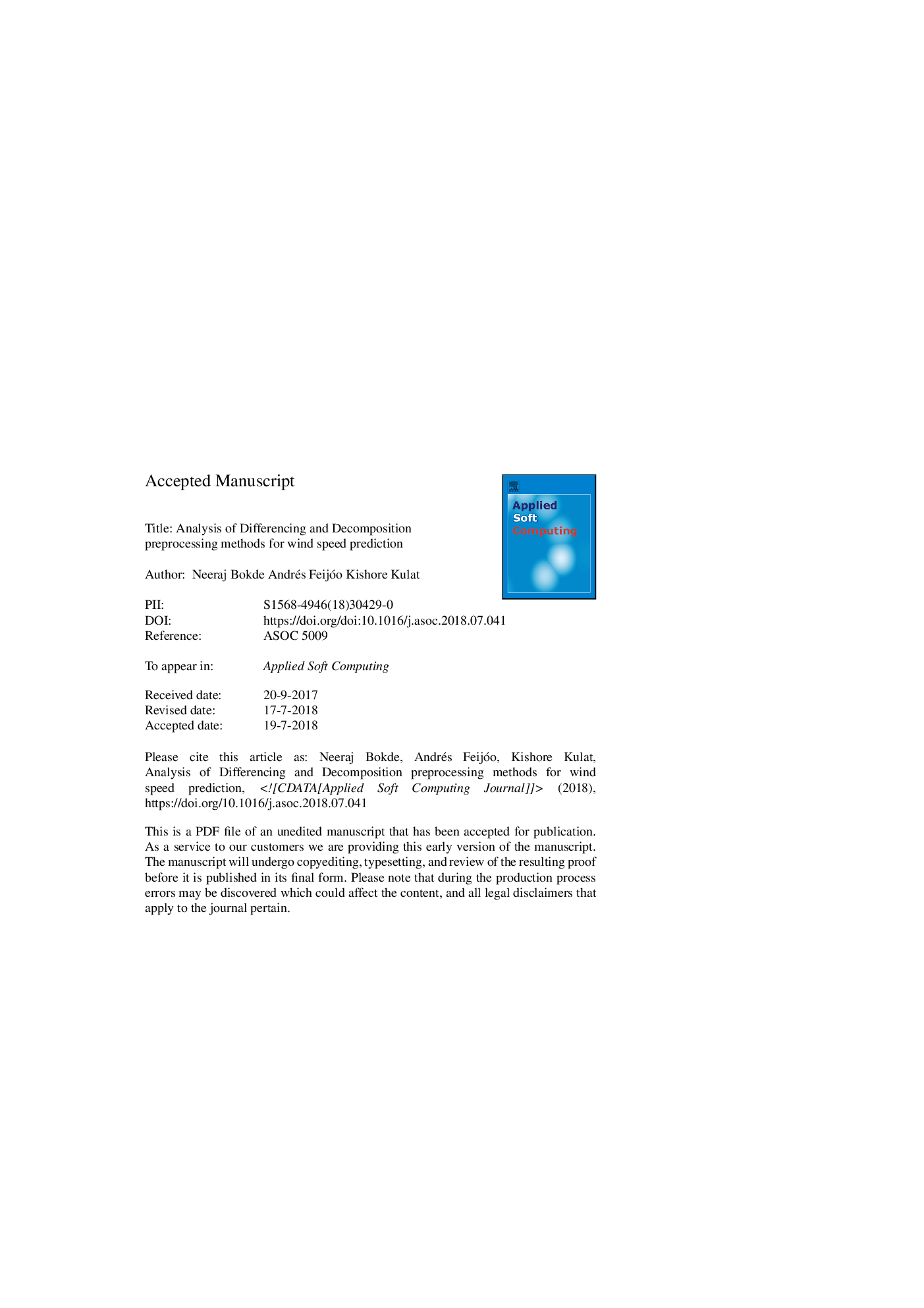| کد مقاله | کد نشریه | سال انتشار | مقاله انگلیسی | نسخه تمام متن |
|---|---|---|---|---|
| 6903340 | 1446989 | 2018 | 40 صفحه PDF | دانلود رایگان |
عنوان انگلیسی مقاله ISI
Analysis of differencing and decomposition preprocessing methods for wind speed prediction
ترجمه فارسی عنوان
تجزیه و تحلیل روش های پیش پردازش اختلاط و تجزیه برای پیش بینی سرعت باد
دانلود مقاله + سفارش ترجمه
دانلود مقاله ISI انگلیسی
رایگان برای ایرانیان
کلمات کلیدی
00؟ ؟؟؟ 01، 99؟ 00، سری زمانی، پیش بینی، سرعت باد، انرژی تجدید پذیر، پیش پردازش، مدلهای ترکیبی
موضوعات مرتبط
مهندسی و علوم پایه
مهندسی کامپیوتر
نرم افزارهای علوم کامپیوتر
چکیده انگلیسی
Preprocessing methods improve prediction accuracy in a significant way. Generally, they stabilize data series mean and variance and remove irregularities. In this paper, two of these methods have been used and compared in the Pattern Sequence based Forecasting (PSF) algorithm. These preprocessing methods are based on differencing and decomposition principles. In the decomposition approach, the Ensemble Empirical Mode Decomposition-Pattern Sequence based Forecasting (EEMD-PSF) model is used. It decomposes the data into finite numbers of subseries and improves the performance of the PSF method. In the Difference Pattern Sequence based Forecasting (DPSF) method, the effects of trends, seasonality, and irregularity components are reduced to some extent and their consequences are tested on distinct datasets with different patterns. While comparing the effects of these preprocessing methods with the effect of the PSF method for sets of wind speed data collected in the autonomous region of Galicia, Spain, and National Renewable Energy Laboratory (NREL), USA, in terms of prediction accuracy, both methods have performed better than the contemporary methods including single PSF, ARIMA, and LSSVM methods. In terms of computational time consumption, the DPSF method has outperformed the results of the EEMD-PSF model. The simulations revealed that the hybridization of preprocessing and PSF methods has significantly outperformed other state-of-the-art methods for short term wind speed prediction.
ناشر
Database: Elsevier - ScienceDirect (ساینس دایرکت)
Journal: Applied Soft Computing - Volume 71, October 2018, Pages 926-938
Journal: Applied Soft Computing - Volume 71, October 2018, Pages 926-938
نویسندگان
Neeraj Bokde, Andrés Feijóo, Kishore Kulat,
